 Who’s your ideal candidate?
Who’s your ideal candidate?
This week, in a customer meeting, the owner suggested it was time to create an ideal candidate profile for a new position they plan to hire for.
Topgrading recommends creating a Job Summary Scorecard as the first step in hiring for a position. It identifies your ideal candidate in terms of expectations, specifically the measures and competencies you need.
If you’re not struggling to hire people for your business, you probably have a great culture. You get the right people on the bus.
No matter how challenging it is to find employees, now is not the time to lower your standards.
Dos of Hiring
In Masters of Scale, Reid Hoffman shares insight on hiring from Joyce Nethery, whose family runs Kentucky’s Jeptha Creed Distillery.  Kentucky’s Jeptha Creed Distillery is a “ground-to-glass” distillery.
Kentucky’s Jeptha Creed Distillery is a “ground-to-glass” distillery.
If you own/run a business, then you’re also a master distiller, responsible for selecting the right mix of ingredients to take your company to scale. But instead of artisanal grains, the key ingredients are the people who make up the essence of your culture.
To hire the right people, you must articulate the human qualities central to your culture. Then figure out how to identify them in an interview.
Arianna Huffington of Thrive Global considers “compassionate directness” to be the most important cultural value at her company. Arianna defines this as “being able to have tough conversations, being able to disagree—including with managers and executives of every rank—and being able to speak out when you’re upset about something or have a complaint.”
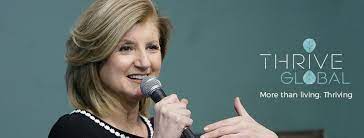 When interviewing, Arianna asks candidates for an example of a tough conversation they recently had to get a sense of how they handle dissatisfaction. “Because there is no workplace where you’re going to be happy all the time. That Garden of Eden does not exist.”
When interviewing, Arianna asks candidates for an example of a tough conversation they recently had to get a sense of how they handle dissatisfaction. “Because there is no workplace where you’re going to be happy all the time. That Garden of Eden does not exist.”
Former Google CEO Eric Schmidt believes their winning combination is persistence and curiosity.
“Persistence is the single biggest predictor of future success,” Schmidt says. “And so at Google, we would look for persistence. And the second thing was curiosity—as in, what do you care about? The combination of persistence and curiosity is a very good predictor of employee success in a knowledge economy.”
Don’ts
The psychologist and Wharton School professor Adam Grant, says, “As a founder trying to build a culture, the first thing you do is say, "It is nice to have the right people on your bus, but it is even more critical to keep the wrong people off your bus."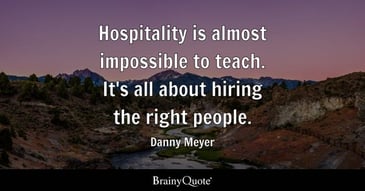
When it comes to hiring, you should ask, "What are the qualities I am absolutely unwilling to let into the organization?’”
A common refrain among founders: Beware the soloist who never learned to play with an orchestra.
CEO and consultant Margaret Heffernan advises: Don’t hire people who can’t name anyone who ever helped them.
Discover this by asking who has helped most in a candidate’s career. “If they can’t remember anyone, that’s a pretty bad sign.”
Danny Meyer’s Six Qualities
Danny Meyer, we shared his insights in In this Restaurant the Staff Comes First – Enlightened Hospitality, has Six Qualities he looks for in employees, something he calls: Hospitality Quotient.
Essentially, it’s how their work makes others feel.
These six emotional skills are always present in a person who has a high HQ. These aren’t good or bad, he just doesn’t want to hire you if you have a low HQ.
Watch Meyer’s 4-minute video on Six Qualities He Looks for in Employees.
- Kind & Optimistic - Skeptics don’t care about making people feel better
- Curious Intelligence - Every day is an opportunity to learn something new.
- Great Work Ethic - Care about doing the job as well as it can be done.
- High Degree of Empathy - Care about how you make people feel.
- Self-Awareness - How are you impacting others?
- Integrity - Do the right thing even when it’s not in your self-interest, and no one else is looking.)
“It’s frustrating because sometimes there are really good performers who suck for your culture,” Meyer says. “And sometimes there are extraordinarily awesome people who just can’t get the job done.”
Hiring Mistakes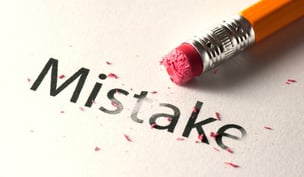
Arianna Huffington advises: Don’t interview or hire people when you’re tired.
“I can trace back all my hiring mistakes to being tired—which has the impact not just of impairing your cognitive abilities to make the right decisions but also subconsciously of making you want to say yes,” she says. “So now at Thrive, having learned from my mistakes, we have a rule that nobody should interview while tired.”
To scale your business the key ingredients are the people who make up the essence of your culture.
To create an environment where everyone is inspired to give their best, contact Positioning Systems today to schedule a free exploratory meeting.
Growth demands Strategic Discipline.
What’s worse than conflict? Next blog we’ll discuss this, and why your meetings are boring. How can you spice them up? Join me next blog.
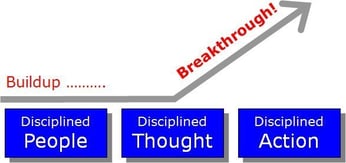 Building an enduring great organization requires disciplined people, disciplined thought, disciplined action, providing superior results, which produce a distinctive impact on the world.
Building an enduring great organization requires disciplined people, disciplined thought, disciplined action, providing superior results, which produce a distinctive impact on the world.
Discipline sustains momentum, laying the foundations for lasting endurance over a long period.
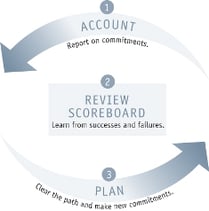 A winning habit starts with 3 Strategic Disciplines: Priority, Metrics, and Meeting Rhythms. Forecasting, accountability, individual, and team performance improve dramatically.
A winning habit starts with 3 Strategic Disciplines: Priority, Metrics, and Meeting Rhythms. Forecasting, accountability, individual, and team performance improve dramatically.
Meeting Rhythms achieve a disciplined focus on performance metrics to drive growth.
Let Positioning Systems help your business achieve these outcomes on the Four most Important Decisions your business faces:
|
DECISION |
RESULT/OUTCOME |
|
PEOPLE |
|
|
STRATEGY |
|
|
EXECUTION |
|
|
CASH |
|
Positioning Systems helps mid-sized ($5M - $250M+) businesses Scale-UP. We align your business to focus on Your One Thing! Contact dwick@positioningsystems.com to Scale Up your business! Take our Four Decisions Needs Assessment to discover how your business measures against other Scaled Up companies. We’ll contact you.
NEXT BLOG – Boring Meetings






.jpeg?width=150&height=135&name=Hand%20with%20marker%20writing%20the%20question%20Whats%20Next_%20(1).jpeg)

